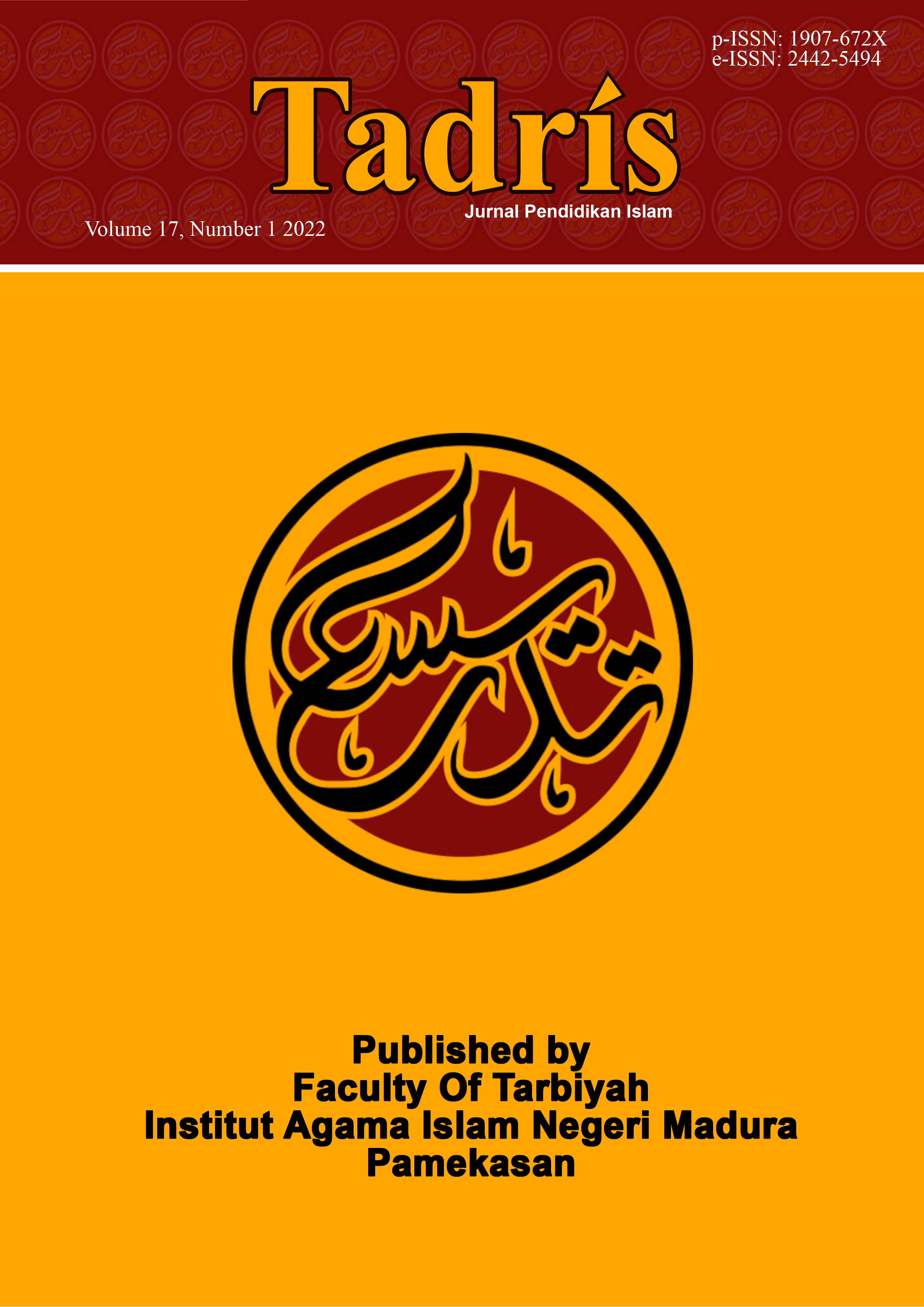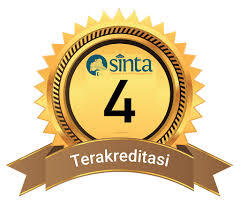Islamic Religious Education in Perspective Urban Society: Analysis of Factors Influencing Parents' Decisions Choosing an Islamic Religious Education Institution at Mataram City
 Abstract views: 380
,
Abstract views: 380
,
 PDF downloads: 338
PDF downloads: 338
Abstract
This study was driven by the growing interest of students’ parents in Islamic boarding schools in recent years in the capital city of Mataram, West Nusa Tenggara. It was evidenced by the gap between the number of Islamic schools and the number of applying students and accepted with the ratio of 1:5 (one accepted out of five applicants). This trend was also proven by the emergence of integrated schools, Tahfiz schools, Qur’anic schools, Islamic kindergarten and etc. This study aimed to examine the factors affecting the parents’ decision in sending their children to Islamic boarding schools in the city of Mataram. This study drew on the descriptive quantitative method that analyzed the data through multiple linier regression, F test and t-test. The statistical evidence showed that motivation (x1) and perceptions (x2) significantly influenced the parents’ decision to send their offspring to the Islamic schools (Y) in the capital city with 45% (motivation) and 51% (perceptions). It was also found that economic factor (x3) did not significantly influence their decision with only 29% contributing factor. This was caused by 62% of the parents having adequate permanent jobs and high levels of education from senior secondary to doctorate degree. The most influential factor for enrolling their children was the parents’ perceptions (x2) as evidenced by the value r= 51 or 51%, followed by motivation (X1) with 45%, and economic factor (X3) with 29%. This study also unveiled that the percentage of schooling preferences of the parents according to the school levels varied from SDIT/MI 37.2%, MTs/SMPIT 33.5%, and MA/SMAIT 29.3%.
Downloads
References
Azra, Azzyumardi, Pendidikan Islam: Tradisi dan Modernisasi Menuju Millenium Baru, Jakarta. Logos Wacana Ilmu. 2017.
Bintarto, Interaksi Desa- Kota dan Pemasalahannya ( Jakarta Ghalia Indoneisa 1989).
Bitar, “ Pengertian Keputusan, Proses, Tipe, Tentatif, Terencana dari Para Ahli”. Dalam http:// www.gurupendidikan.co.id.
Buku Rencana Jangka Panjang dan Menengah Daerah (RPJMD) Kota Mataram 2019. Bappeda Kota Mataram 2019.
Claude, S, George,Jr. Syamsi Ibnu. Pengambilan Keputusan dan Sistem Informasi.(Jakarta. Bumu Aksara, 2007 ).
Data Statistik Pendidikan Islam, Kanwil Kemenag NTB, dalam http://emispendis. kemenag.go.id/, Diakses pada tanggal, 2 Juni 2021.
Daryanto, dan Muh Farid. Adminsitrasi Pendidikan. Jakarta. PT. Rineke Cipta. 2013.
Fatiah Abu Al Adnani,, “ Empat Tahapan Mendidik Anak Menurut Rosululloh “ http://Jurnalislam.com. Diakses 17 Oktober 2021.
Fatrihah, BimbingN Keagamaan bagi Masyarakat Perkotaan. Dalam http://jurnal.iainkudus.ac.id Vol.5 No.1 Tahun 2014.
Mahmud, dkk. Pendidikan Islam dalam Keluarga, Jakarta, Akademi Permata. 2013.
Mastuhu, Memberdayakan Pendidikan Islam ( Jakarta, PT.Logos Wacana Ilmu, 1999).
Mudyahardjo, Redja, Pengantar Pendidikan Sebuah Studi Awal tentang Dasar- Dasar
Pendidikan Pada Umumnya dan Pendidikan Indonesia. Jakarta: Raja Grafindo Persada. 2013.
Suryabrata. Sumadi, Metodologi Penelitian Pendidikan, (Jakarta : PT Raja Grafindo Persada, 1998). Hal 18.
Syamsi Ibnu. Pengambilan Keputusan dan Sistem Informasi. Jakarta. Bumi Aksara. 2000.
Walgito Bimo. Pengantar Psikologi Umum. (Yogyakarta Publisher. Andi Offset, 2005). Hal.241.
Wiyani NA dan Barnawi. Ilmu Pendidikan Islam. Yogyakarta. Arruzz Media.2012.
Yusuf Samsu. Perkembangan Anak dan Remaja . Bandung. PT. Rineke Cipta. 2016.
Zakiyah Dradjad, Ilmu Pendidikan Islam. Jakarta, Bumi Aksara. 1992.
Copyright (c) 2022 TADRIS: Jurnal Pendidikan Islam

This work is licensed under a Creative Commons Attribution-NonCommercial 4.0 International License.
The journal operates an Open Access policy under a Creative Commons Non-Commercial 4.0 International license. Authors who publish with this journal agree to the following terms:
- Authors retain copyright and grant the journal right of first publication with the work simultaneously licensed under a
 Commons Attribution-NonCommercial 4.0 International License
Commons Attribution-NonCommercial 4.0 International Licensethat allows others to share — copy and redistribute the material in any medium or format, and adapt — remix, transform, and build upon the material.
- Authors are able to enter into separate, additional contractual arrangements for the non-exclusive distribution of the journal's published version of the work (e.g., post it to an institutional repository or publish it in a book), with an acknowledgement of its initial publication in this journal.
- Authors are permitted and encouraged to post their work online (e.g., in institutional repositories or on their website) prior to and during the submission process, as it can lead to productive exchanges, as well as earlier and greater citation of published work (see The Effect of Open Access).














